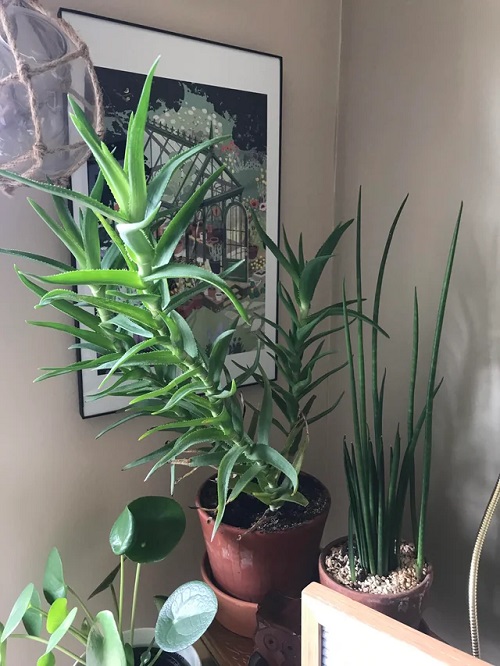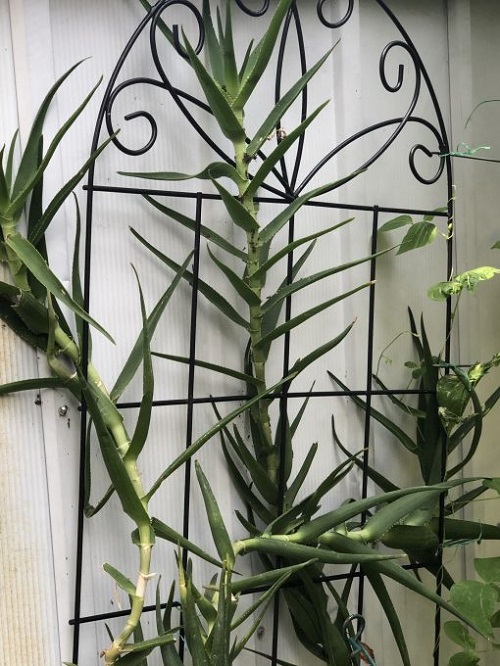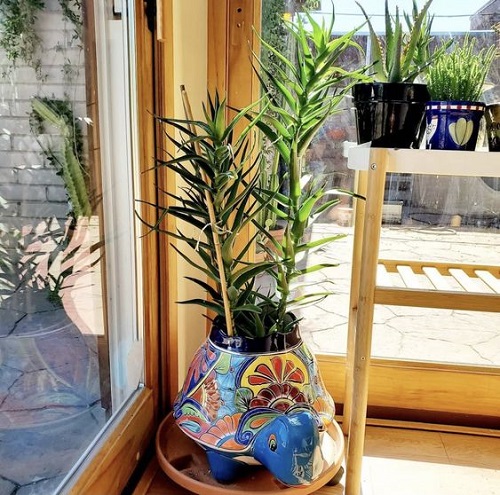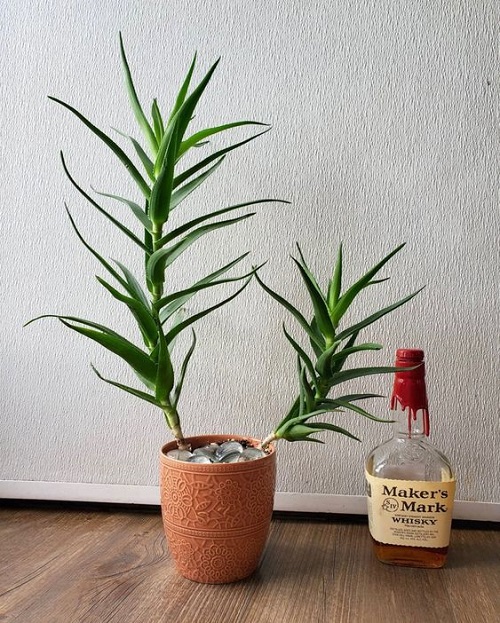Learning How to Grow Climbing Aloe Indoors as a Vine is the best way to showcase this pant in a quirky way in your garden and home!
You can train one plant if you love vines but want them to be succulents! Here are some tricks on How to Grow Climbing Aloe Indoors as a Vine!
Discover aloe plant display ideas here
Climbing Aloe Information
Climbing Aloe (Aloe ciliaris) belongs to the Asphodelaceae family and is characterized by slender, trailing stems that can grow up to 20-30 feet long. Its lance-shaped leaves are typically green but sometimes with a bluish tinge.
The plant produces clusters of tubular, orange-red to scarlet flowers that attract pollinators like birds and insects. Its narrow leaves have small, soft teeth or bristles along the edges and can store water like other succulents.
Read aloe plant turning brown reasons and solutions here
Right Pot Size For Growing Climbing Aloe
Typically, a pot that is 1-2 inches larger in diameter than the plant’s root ball is ideal. This size provides enough space for the roots to grow without being too large, which can lead to waterlogging and root rot.
For a young or small Climbing Aloe, a pot with a diameter of about 6-8 inches should suffice. You may need to re-pot the plant every couple of years as it grows. When repotting, choose a pot that’s one size larger than the current one. This incremental increase in size helps maintain the balance between root space and soil moisture, which is vital for plant health.
How to Grow Climbing Aloe Indoors as a Vine
Growing Climbing Aloe (Aloiampelos ciliaris) in a way that mimics the growth pattern of a vine requires a combination of traditional care and some creative techniques.
1. Support and Training
- Trellis or Wire Frame: Install a trellis or a wire frame near the plant. As it grows, gently wrap or tie its stems around the structure. This encourages the plant to grow upwards and spread like a vine.
- Hanging Baskets: Plant Climbing Aloe in a hanging basket. Allow the shoots to grow downwards, creating a cascading vine-like effect.
2. Directional Training
- Guided Growth: Use soft garden ties or twine to guide new shoots in desired directions. This helps in creating a more controlled, vine-like appearance.
- Pruning: Regularly prune the plant to encourage branching. More branches mean more shoots that can be trained to grow like a vine.
3. Utilizing Gravity
Try an unconventional approach by planting Climbing Aloe in an upside-down or a tilted planter. This allows the plant to grow downwards naturally, mimicking a vine’s growth.
Aloe Vera vs. Snake Plant: All the Differences
4. Creating a Lattice Framework
Construct a DIY lattice framework around the plant. Weave the stems through the lattice as they grow to encourage horizontal and vertical growth.
5. Companion Planting
Plant Climbing Aloe alongside true vining plants. This can make it gel with the vines, looking like the growth patterns of its neighbors.
6. Light Manipulation
Use grow lights to encourage the plant to grow towards or away from a light source, aiding in achieving a vining effect. You can also use a well lit window for this purpose.
7. Moss Poles and Coco Coir
Use moss or wrapped poles with coco coir. These provide a natural, moisture-retentive support structure for the tendrils to cling to and climb.
Conclusion

By employing these creative methods, you can effectively train your Climbing Aloe to grow like a vining plant, adding an intriguing and unique aspect to indoor gardening. Remember:
- Patience is Key: Training Climbing Aloe to grow like a vine takes time and patience.
- Monitor and Adjust: Regularly check the plant’s progress and adjust your training techniques as needed.




